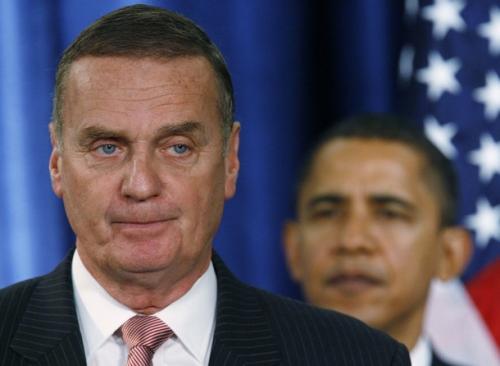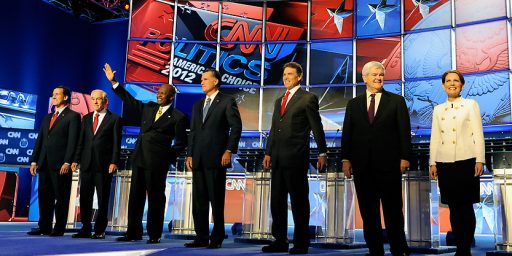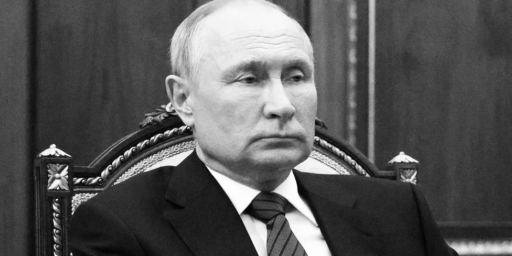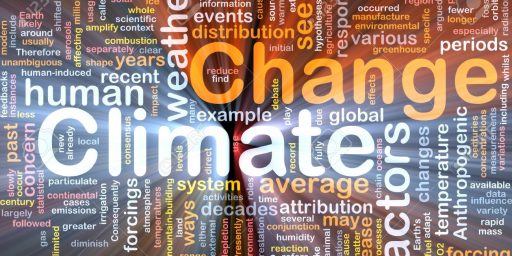National Security Strategy
The Obama Administration is releasing its long-awaited National Security Strategy today. Josh Rogin and others have a sneak preview.
I’ll be doing more substantive commentary once I’ve had a chance to digest the whole 52-page document. In the meantime, I’ve compiled a roundup post at New Atlanticist titled “National Security Strategy Instant Reactions.”
My main concern is the very thing that makes Christine Parthemore, the Bacevich Fellow at the Center for a New American Security, so happy. She does a word count and notes “The new NSS mentions energy more than engagement or military. And climate change appears more than intelligence.” Of the words she tracked, development (76 mentions) tops the list, followed closely by nuclear (74). Well down the list are energy (49), military (44), engagement (43), climate change (28), and intelligence (18).
To me, this is defining national security in a way that has no meaning.
In fairness, the actual conduct of foreign policy under Obama is not, as I’ve written before, all that great a departure from that of post-2005 George W. Bush. But, clearly, they very much want us to think otherwise.







I’m going to have to read the rest after I cool down a bit. I was bored by the introduction and the first section, briefly excited at the opening of the second section, only to be disappointed that our actual strategic interests appeared to be cast away in favor of a domestic wish list.
So far the document resembles a State of the Union speech. A State of the Globe, perhaps? A long wish list that doesn’t mean a great deal.
Are we genuinely underinvested in education and healthcare? We spend well over a trillion dollars a year on education and three trillion a year on healthcare and rising fast. What would be an appropriate level of investment and how can that be realized?
Well, hasn’t a good part of our “national security” since the Iranian revolution been about securing “energy security?”
Carter Doctrine
We could call it Colonial Policy if we were more honest 😉
She did a word count ?
This is what passes for serious analysis ?
In fairness, the actual conduct of foreign policy under Obama is not, as I’ve written before, all that great a departure from that of post-2005 George W. Bush. But, clearly, they very much want us to think otherwise.
Either a charade or a process of redefining national security strategy where the rate of change is tied to a feedback loop. The more that is changed the faster additional change can be implemented but so far, with policy being not too divergent from Bush-era policy, the rate of change is small. This document might be a roadmap to some desired end state.
That’s an apt description, an impression that I got from reading it (I read the whole thing this morning) as well. There’s some content in there (although it’s nothing that hasn’t been said before), but most of it is drowned in a whole lot of “fluff” (nice rhetoric), as well as a laundry list of Obama projects on everything from the economy to climate change.
It waters the definition of “National Security” down to the point of near-uselessness in the process, including things like domestic initiatives to boost the economy and the like. Really, don’t waste your time reading the whole thing.
No time to read this for a while. I do think that healing our economy is a major national security issue, but not sure it merits NSS coverage. If the word counts are correct, it sounds like they are going after a CNAS type approach of world wide engagement. Sounds more like State Department stuff.
Steve
Astute observation. And, heck, CNAS was basically launched as a shadow cabinet and both of its founders, Campbell and Flournoy, got plum assignments.